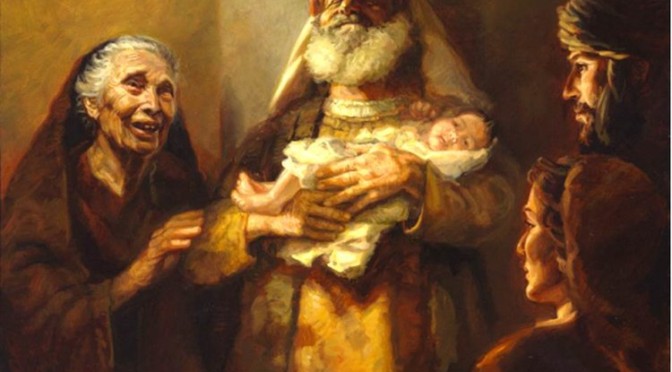Caitlin Trussell with Augustana Lutheran Church on May 22, 2022
[sermon begins after two Bible readings]
John 14:23-29 Jesus answered [Judas (not Iscariot),] “Those who love me will keep my word, and my Father will love them, and we will come to them and make our home with them. 24Whoever does not love me does not keep my words; and the word that you hear is not mine, but is from the Father who sent me.
25“I have said these things to you while I am still with you. 26But the Advocate, the Holy Spirit, whom the Father will send in my name, will teach you everything, and remind you of all that I have said to you. 27Peace I leave with you; my peace I give to you. I do not give to you as the world gives. Do not let your hearts be troubled, and do not let them be afraid. 28You heard me say to you, ‘I am going away, and I am coming to you.’ If you loved me, you would rejoice that I am going to the Father, because the Father is greater than I. 29And now I have told you this before it occurs, so that when it does occur, you may believe.”
Acts 16.9-15 During the night Paul had a vision: there stood a man of Macedonia pleading with him and saying, “Come over to Macedonia and help us.” 10When he had seen the vision, we immediately tried to cross over to Macedonia, being convinced that God had called us to proclaim the good news to them. 11We set sail from Troas and took a straight course to Samothrace, the following day to Neapolis, 12and from there to Philippi, which is a leading city of the district of Macedonia and a Roman colony. We remained in this city for some days. 13On the sabbath day we went outside the gate by the river, where we supposed there was a place of prayer; and we sat down and spoke to the women who had gathered there. 14A certain woman named Lydia, a worshiper of God, was listening to us; she was from the city of Thyatira and a dealer in purple cloth. The Lord opened her heart to listen eagerly to what was said by Paul. 15When she and her household were baptized, she urged us, saying, “If you have judged me to be faithful to the Lord, come and stay at my home.” And she prevailed upon us.
[sermon begins]
I want to follow up on something in my sermon from last Sunday when I talked about faith not protecting us from bad things happening. We can look around the room and around the world and see that that’s true. Bad stuff happens to faithful people as much as it happens to everyone else. We don’t know why. We just know it’s the way the world works. A lot of time and energy is spent on trying to answer the “why” question though. I’m more interested in the “what now” question. Maybe I gave that away when I went on to mention how faith strengthens us and gives us courage. When I read the scripture readings for this Sunday, Jesus’ words jumped out at me:
“Peace I leave with you; my peace I give to you. I do not give to you as the world gives. Do not let your hearts be troubled, and do not let them be afraid.” Jesus’ words have been true for me. Not in a stoic way – as if emotions don’t happen or don’t matter. Not in a disengaged way – as if I now have permission to check out of the world’s troubles. Jesus’ words are true for me in a deep-down way – where life is intensely meaningful because it’s life. The other day I had one of those moments during the lunar eclipse. We had chairs lined up in our driveway and our neighbors set up a second row behind us. Watching the earth’s shadow cast itself slowly over the moon until the moon was fully shadowed, gave the moon a 3D look with a spooky reddish-brown color. It struck me, not for the first time, how odd and beautiful our existence is, not to mention our planet and our universe which transcends into the divine.
Jesus speaks from a divine abiding place when he talks about peace. He mentions the Father who will make a home with them as well as the Advocate, the Holy Spirit that will remind and teach – a combined transcendent power that coalesces in the person of Jesus. The mystery of the universe and the mystery of Jesus are similar mysteries to me. Sure, you can explain black holes and string theory to me while I explain theology and Christian ethics to you, but at the end of the day both the Blood Moon and the fully-human-fully-divine Jesus are ineffable. Our explanations simply can’t do justice to our experience of them.
For instance, there’s a thing that happens to me when someone repeatedly comes to mind. I call it a Holy Spirit nudge because when I call and check in with that person there’s often a really good reason that the call’s timing was important. It’s never 100% reliable. (PSA: Don’t try this at home – call me if you need to talk with me.) I can’t explain the feeling but I’m familiar enough with it now that ignoring it feels uncomfortable, like I’m missing an important appointment. We could argue until kingdom come about whether that feeling is experience playing into instinct or whether it’s the Holy Spirit but my way of explaining the mystery of it is to call it the Holy Spirit.
I wonder if this is a bit like what the Apostle Paul and his friends experienced when they set sail after Paul’s vision of a man in Macedonia who begged them to come and help. Paul’s vision is a heck of lot more dramatic than my nagging feeling to give someone a call. This story in the book of Acts charts quite a course – from Troas to Samothrace to Neapolis until landing in Philippi located in the northeast of what is modern day Greece. Thank God for the Sabbath which gave Paul, Silas, and Timothy a chance to catch their breath, recentering themselves in a place of prayer outside the gate by the river. The place where they met Lydia. Her story is just a few verses so it’s slightly irrational how much I love it. There are a few gems worth noting. Lydia was likely an independent businesswoman since she and her household weren’t named with a husband. Purple cloth was difficult to make, highly prized by royalty, and quite expensive. Lydia was faithful and generous – hosting her new Jesus-following friends after she and her household were baptized. Lydia’s story is one of several in the Bible that describes household baptisms which are part of how the church included infant baptism in its practice.
I wonder how Lydia would have described her experience with the new guys at the place of prayer. She may not have had the churchy words to use at first, but I wonder if she was able to find more words looking back at her time before and after her river baptism. Or if the mystery of her experience was difficult to fully explain. Whatever her explanation, Lydia and her household’s baptisms were foundational to the church in Philippi. The church to which Paul wrote his letter to the Philippians. As I was writing this sermon, I read the opening of Paul’s letter to the Philippians and found that reading it in light of Lydia’s conversion changed my hearing of it. Next Sunday’s Acts reading tells one more significant story about Paul, Silas, and Timothy’s time in Philippi before departing to Thessalonica.
Man, I love the Bible. I love that we have these early stories at first only shared verbally and then finally written down to be shared across faith communities across time. Sometimes we get lost in the nitty gritty of the accuracy of the stories or the legitimacy of the claims. For me, teasing each story apart, putting it back together, and finding gems that apply to my life is the teaching and reminding work of the Holy Spirit that Jesus talks about in our reading today. We never fully arrive to a conclusion about a Bible story. Or maybe it’s more accurate to say that a Bible story is never fully done with us. They are gifts that keep on giving across our lives. It took some courage for me to even begin my way back into the Bible as adult. I’d been out of its loop for about ten years and only very tentatively began to turn its pages. Jesus’ encouragement to have untroubled hearts, and to be fearless, are part of what has helped me enjoy the layers of meaning in any given verse or set of verses as well as the subtle perspective shifts and not so subtle disagreements between writers of the different books of the Bible.
I know that I say this in sermons with some regularity but it’s important to understand that God’s salvation in Jesus by the power of the Holy Spirit through faith is not based on our right thinking or on orthodoxy or doctrine. The words that we give our experiences by faith are important for sure. Paul and Lydia’s story is a case in point. But God’s power is greater than anything I might say or anything you might do. It’s one of the reasons I’m grateful that communion comes after the sermon. No matter what mess I may make of things from the pulpit, God gets the last word. That’s a life lesson too. No matter what mess I may make of my life, God gets the last word. Today, God’s last word comes from Jesus in a blessing of peace.
I don’t know about you, but I need Jesus’ peace this week. The divine peace that sustains existentially through the day-to-day joys, sorrows, and everything in between. Paradoxically, this is the very peace that’s needed to stay deeply engaged with the world and all its problems. As I’ve been connecting with people on a recent continuing ed trip to Montgomery (Alabama), then connecting with people in Loveland at Synod Assembly, here at church, at the gym, in my family, with my friends, I don’t think I’m the only one who needs Jesus’ peace. There’s an emotional defcon level across our culture that seems unsustainable. Those reactive emotions tend to dampen joy that’s ours because life is meaningful simply because it’s life. Today, in this very moment, and in the next month, and for life eternal, Jesus gives you peace by the power of the Holy Spirit through the mystery of an ineffable God. May God’s peace untrouble your hearts and give you strength and courage on this Sabbath day. Thanks be to God and amen.

![Peace for Today [OR Check Out Lydia’s Bible Story – She’s Cool] John 14:23-29 and Acts 16.9-15](http://caitlintrussell.org/wp-content/uploads/2022/05/john-14-27-peace-do-no-let-hearts-be-troubled-do-not-let-them-be-afraid-672x372.png)





